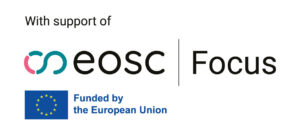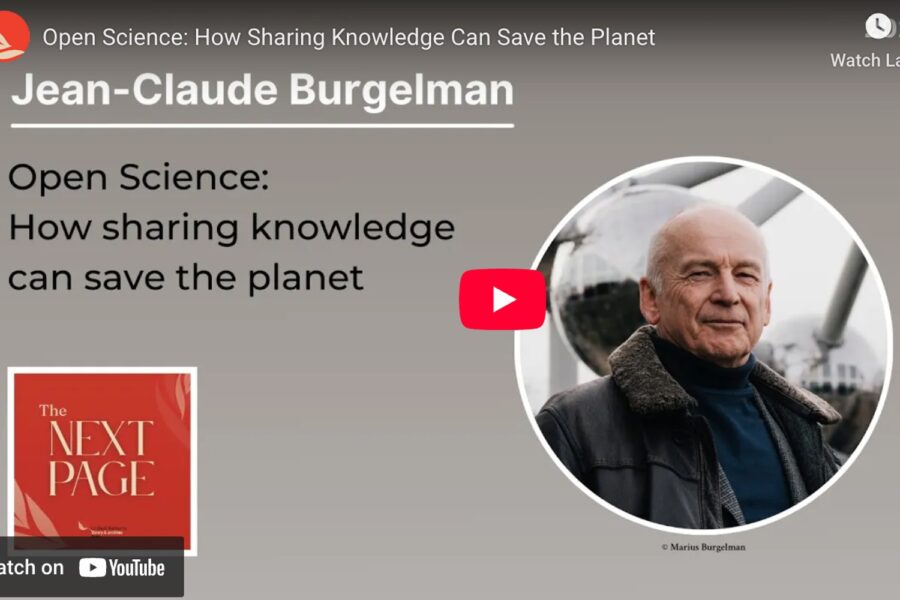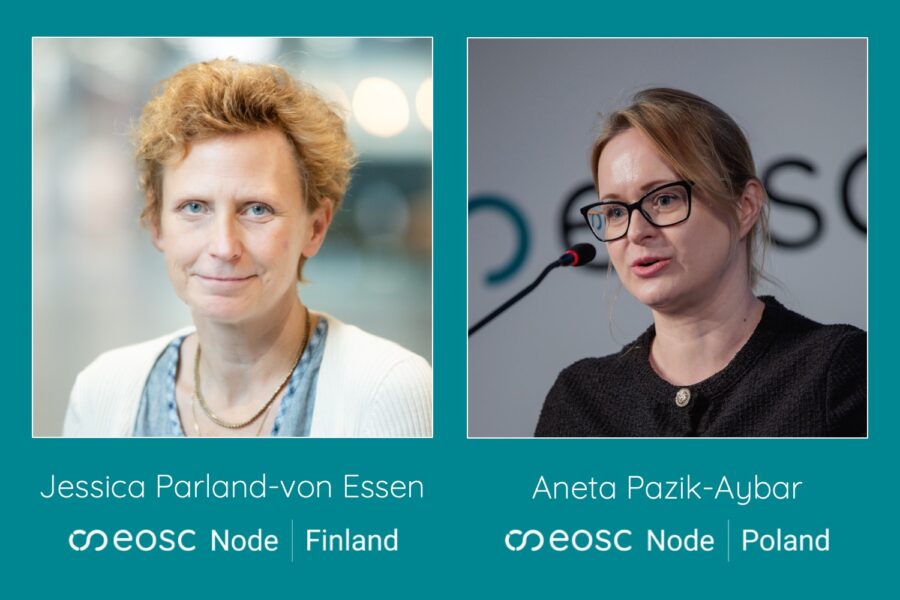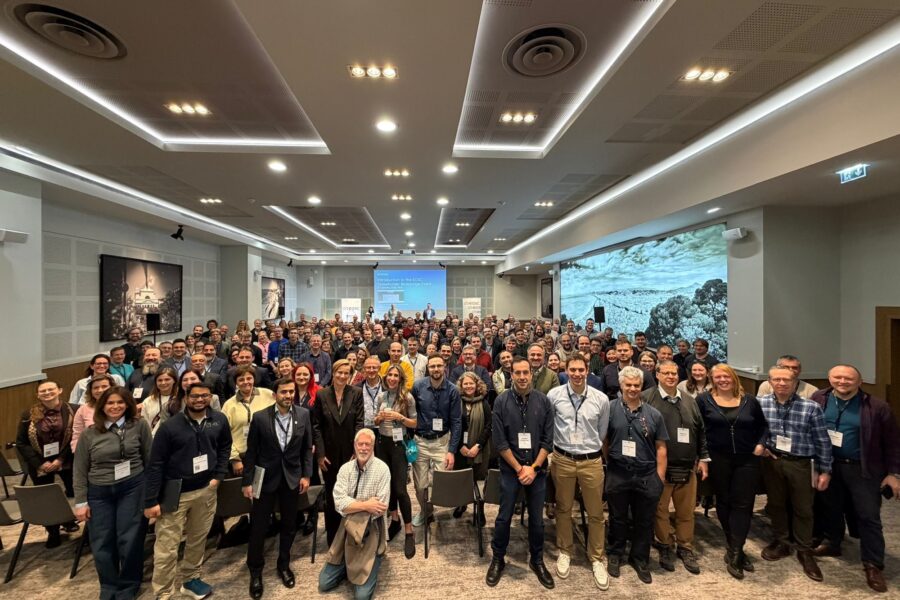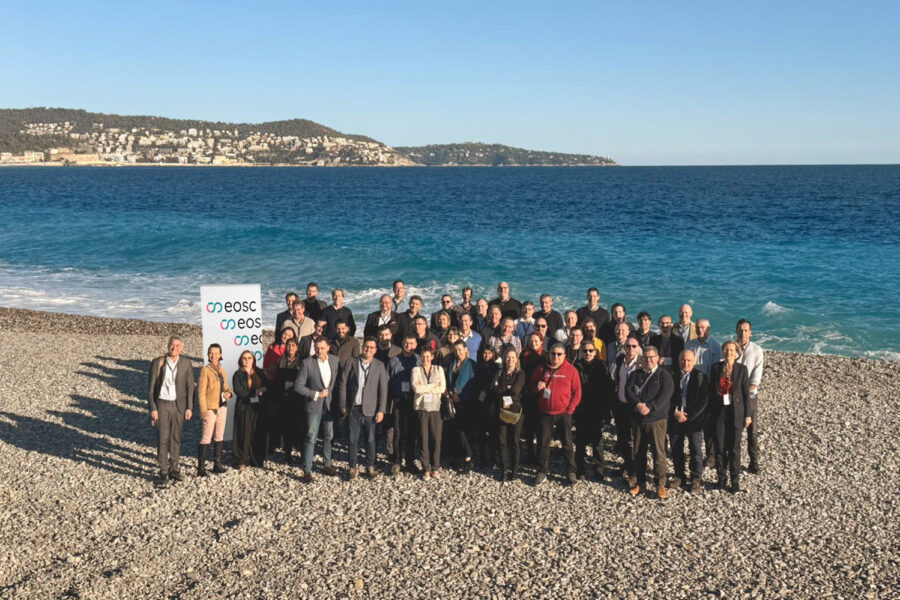MADRID — The EOSC National Tripartite Event for Spain took place on 19 September at the offices of the Spanish National Research Council (CSIC), the Spanish Mandated Organisation for the EOSC Association, under the auspices of the Spanish Presidency of the Council of the European Union.
The onsite event was attended by 70 representatives from research-performing or -funding organisations, e-infrastructure providers, Research Infrastructures and other policy stakeholders. The large community was welcomed by Isabel Díaz, Deputy Vice President of Internationalisation and Cooperation at CSIC, and Inmaculada Figueroa, Deputy Vice Director General for Internationalisation of Science & Innovation in the Spanish Ministry of Science & Innovation (SGI-MICINN).
The programme was organised into four block sessions including: EOSC governance, Open Science in data-intensive scientific communities, e-Infrastructures and policies supporting EOSC, and the future of EOSC in Spain and towards SRIA 2.0.
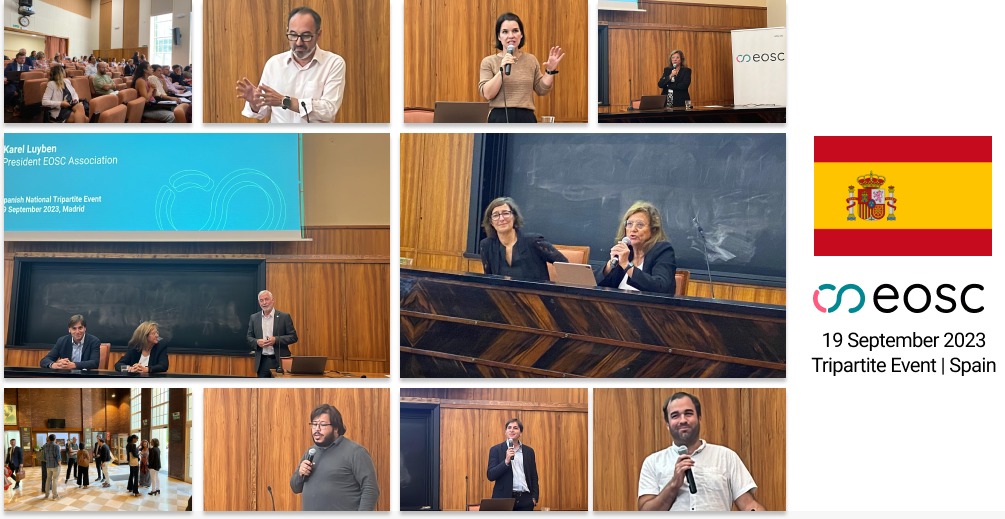
EOSC governance
Karel Luyben, President of the EOSC Association (EOSC-A), introduced Open Science as ‘a web of scientific insight’,and EOSC as the additionality to the web of FAIR data that aims to federate infrastructures, including both Research Infrastructures (RI) and e-Infrastructures supported by the Member States and Associated Countries (MS/AC). Recent engagement of EOSC-A was highlighted by its involvement with the ESFRI RIs Working Group, as well as CODATA, GO FAIR, and the Research Data Alliance (RDA) on a global scale.
From the Spanish Ministry of Science and Innovation, Inmaculada Figueroa, in her role as the Spanish representative on the EOSC Steering Board (EOSC-SB), noted the active involvement of CSIC in the development of EOSC as one of the four founding members of EOSC-A as well as serving as the Association’s Mandated Organisation in Spain. The current Spanish EOSC-SB team is supported by subgroups for monitoring and policies, with activities focusing on the future model of EOSC beyond 2027, ESFRIs, EOSC Task Forces, Data Spaces, and the EOSC Observatory.
Javier López-Albacete from the European Commission, emphasised EOSC as part of the EU strategy for Open Science, in alignment with the European Research Area (ERA) policy agenda (2021-2024), in particular, ERA Action 1, to enable sharing of research knowledge, data and tools including through the EOSC. The deliverables include deploying the ‘EOSC EU Node’ and expanding the EOSC federation as a system of systems, which will require future tasks towards the EOSC post-2027.
Open Science in data-intensive scientific communities
Of particular interest during the event was the exploration of Open Science in data-intensive scientific communities, including astronomy, photonics and neutronics, the social sciences, humanities, health, genomics, and oceanography. The major issues faced by these disciplines, some of which are domain-specific, such as Big Data and sensitive data, were addressed in the context of open access to FAIR data, a federated Authentication and Authorization Infrastructure (AAI) for EOSC, and the EU General Data Protection Regulation (GDPR).
e-Infrastructures and policies supporting EOSC
The federation of e-infrastructures in Spain supporting EOSC was showcased by IberGrid and the Spanish Network for Supercomputing (RES). Mark Dietrich, a senior advisor at the EGI Foundation, introduced Spain as a key contributor to the EGI federation to data-intensive computing through IberGrid services offered via the EOSC Portal. Nadia Tonello, data management manager at the Barcelona Supercomputing Center (BSC) demonstrated how RES coordinates 14 Spanish infrastructures for high-performance computing, data exploitation and AI. Another national structure, the Spanish Network for e-Science (REeC), was presented by EOSC-A board member Ignacio Blanquer (UPV). REeC advises the General Secretariat for Research (SGI-MICINN) on the promotion and coordination of the development of e-science in Spain. The Spanish participation in the EC’s Horizon Europe INFRAEOSC projects was encouraged by Pilar Rico Castro of the Spanish Foundation for Science and Technology (FECYT), in alignment with the recently approved Spanish National Strategy for Open Science (ENCA). Composed of four main pillars, the national policy’s first pillar is focused on digital infrastructures for Open Science, facilitating the integration of data and services into EOSC.
Future of EOSC in Spain towards SRIA 2.0
Contributions to the development of the EOSC Partnership’s Strategic R&I Agenda (SRIA 2.0) were highlighted, first, by a representative of the EOSC-A Task Force on FAIR metrics and data quality Fernando Aguilar (VICYT-CSIC). In the context of the future governance of EOSC, examples of European governance models were presented on behalf of the GÉANT Association by Alberto Pérez Gómez (RedIRIS), INSTRUCT-ERIC by Carlos Oscar Sorzano (Instruct Spanish Center), and the European Digital Infrastructure Consortium (EDIC) model was presented by Almudena Ruiz (Spanish economic ministry). For Spain being a member of such European governance bodies, the main opportunities were highlighted for scalability and long-term sustainability in relation to EOSC interacting with European National Research and Education Networks (NRENs), Research Infrastructures, and the Digital Decade Policy Programme.
To wrap up the presented sessions, a discussion was moderated by Ignacio Blanquer (UPV) to explore the features of the EOSC EU node; examples of potential Spanish nodes; and tasks that Spain should focus on for EOSC post-2027.
The participants addressed some of the challenges of bridging between EOSC at the policy level and individual researchers as end-users at the operational level. Overall, cross-disciplinary collaboration was found to be more challenging than cross-national collaboration, leading to the opportunity of demonstrating a federated multi-disciplinary environment as a part of the added value of EOSC.
In her concluding remarks, Inmaculada Figueroa brought attention to the importance of Spanish initiatives leading the country-specific strategies for Open Science and EOSC activities, which will be followed up during the adjacent EOSC Symposium 2023, in Madrid, and the upcoming Open Science Fair 2023.


